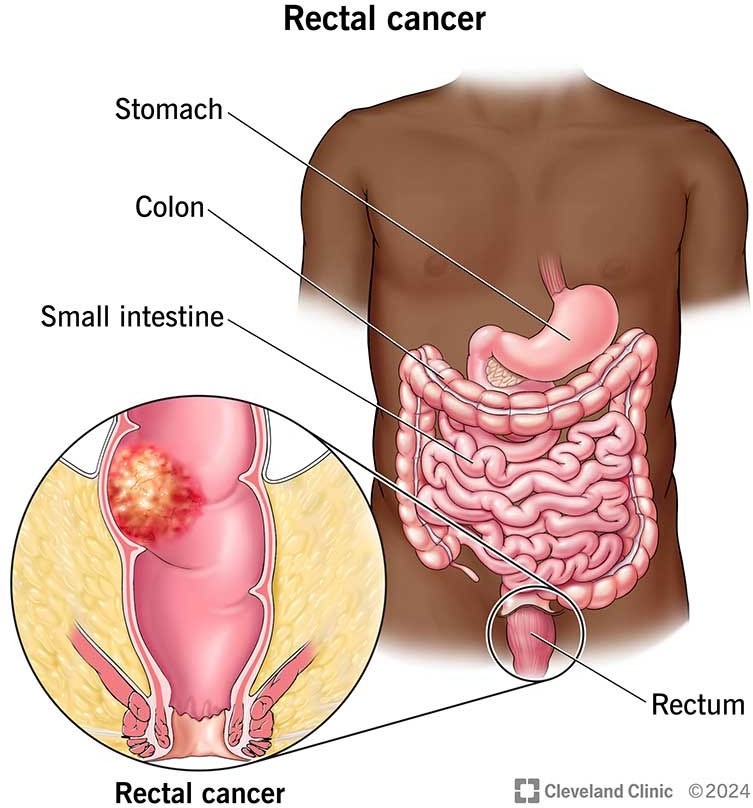A nurse is planning care for a client who requires screening for rectal cancer. Which of the following tests should the nurse anticipate in the client's plan of care?
Upper GI series
Colonoscopy
Endoscopic retrograde cholangiopancreatography (ERCP)
Upper GI endoscopy
The Correct Answer is B
Choice A reason: An upper GI series is a series of X-rays used to examine the esophagus, stomach, and small intestine, not the rectum or colon.
Choice B reason: A colonoscopy is the most appropriate test for screening for rectal cancer as it allows for the
examination of the entire colon and rectum and can also facilitate the removal of polyps.
Choice C reason: ERCP is primarily used to diagnose and treat conditions in the liver, gallbladder, bile ducts, and pancreas, not the rectum.
Choice D reason: An upper GI endoscopy, or esophagogastroduodenoscopy (EGD), is used to examine the lining of the upper part of the gastrointestinal tract, which includes the esophagus, stomach, and duodenum, not the rectum.
 |
Nursing Test Bank
Naxlex Comprehensive Predictor Exams
Related Questions
Correct Answer is D
Explanation
Choice A reason: Memory loss is not typically associated with a lack of dietary fiber. Memory loss can be related to various neurological or psychological conditions.
Choice B reason: Bleeding gums are commonly associated with vitamin C deficiency, not a lack of dietary fiber.
Choice C reason: Brittle hair can be associated with poor nutrition in general, but it is not a specific indicator of inadequate fiber intake.
Choice D reason: Constipation is a well-known symptom of inadequate fiber intake. Fiber helps to bulk up the stool
and promotes regular bowel movements.
Correct Answer is A
Explanation
Choice A reason: An IV infusion of dextrose 10% in water can cause hyperglycemia, which is an elevated blood sugar
level.
Choice B reason: Hypovolemia, or decreased blood volume, is not a typical adverse effect of dextrose infusion.
Choice C reason: Hypercalcemia, or high calcium levels in the blood, is not associated with dextrose infusion.
Choice D reason: While dextrose infusion can affect electrolyte balance, hypokalemia, or low potassium levels, is not
the primary concern with dextrose infusion.
Whether you are a student looking to ace your exams or a practicing nurse seeking to enhance your expertise , our nursing education contents will empower you with the confidence and competence to make a difference in the lives of patients and become a respected leader in the healthcare field.
Visit Naxlex, invest in your future and unlock endless possibilities with our unparalleled nursing education contents today
Report Wrong Answer on the Current Question
Do you disagree with the answer? If yes, what is your expected answer? Explain.
Kindly be descriptive with the issue you are facing.
